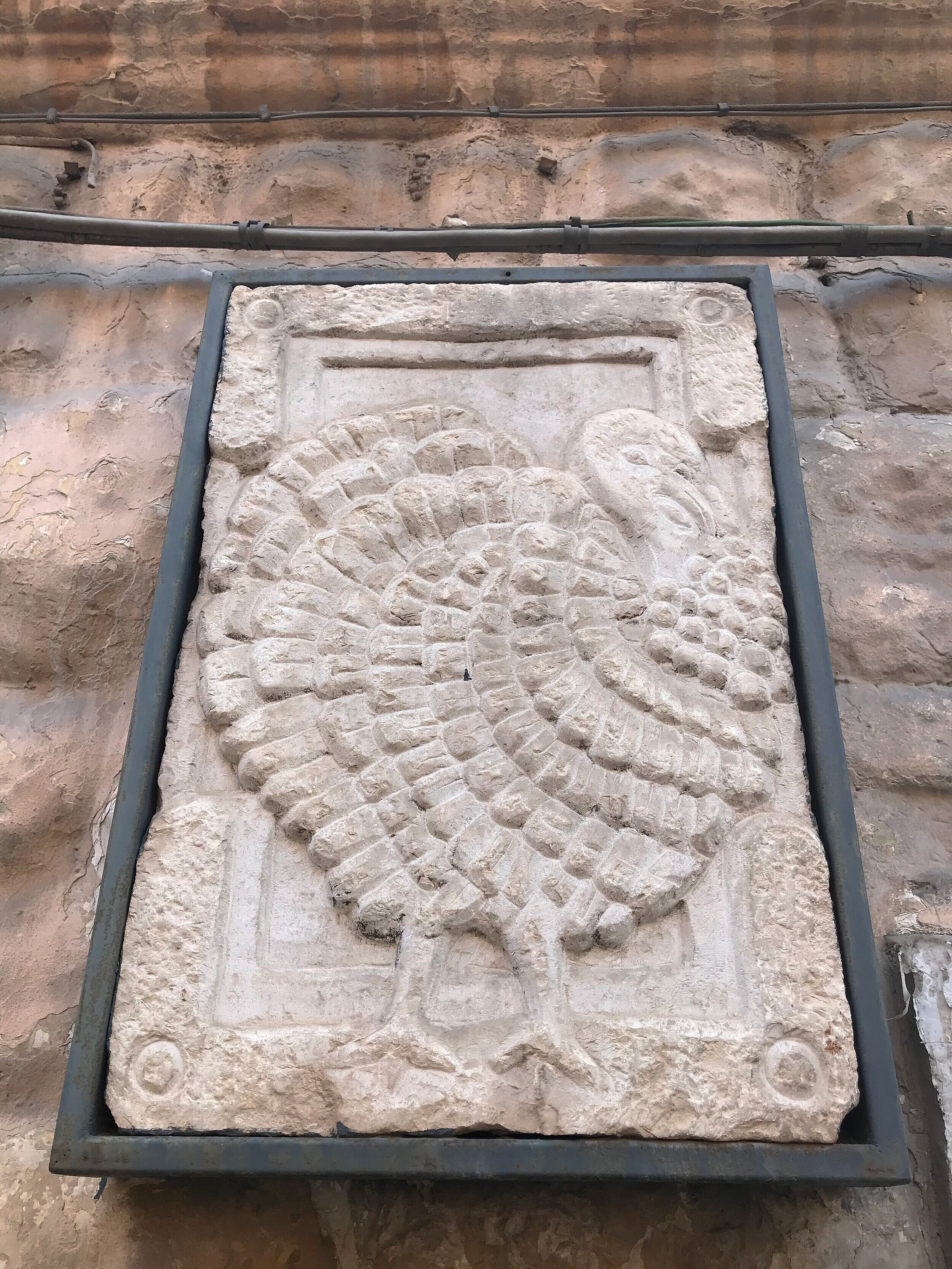Shrove Tuesday, No Pancakes
Piazza Santa Croce
Palo de Collo
AN OUTING to Palo de Colle, near Bari
25th-27th Feb 2020
Animaru in Purgatorio - souls in purgatory
Palo di Colle is a pretty little town to the west of Bari. There’s a handsome main square, Piazza Santa Croce, that once was the courtyard and site of a castle. Plenty of churches, most notably Santa Maria and the ominous Chiesa del Purgatorio, the doorway topped with a ghoulish stone image of sinners writhing in flames as they are cleansed of sin before the onward journey to heaven or hell. There’s the statutory maze of an old town, not as old as some, but still beguiling enough to get lost in for half an hour or so. To be honest, though, I probably wouldn’t have ever visited it if it weren’t for its Shrove Tuesday races. Palo has its very own Palio. Nowhere near as grand as the one in Sienna, no flashy flag-throwing pzazzz, but still an event worth attending. It is, I suppose, the country cousins’ version, but impressive for all that. This one is known as the Palio del Viccio.
So here’s how it works. The town of Palo del Colle is divided into 11 rione, or quartiere, or districts. Each one fields their own champion, a fine, daring and certifiably insane horserider. The horses themselves are Murgese, the sleek local breed from the hills of the Murgia . They are handsome beasts, strong and determined as they will need to be. The main street, Corso Vittorio Emmanuelle, is thickly carpeted with sand, the pavements cordoned off to hold back the crowds. Half-way down its length a rather small and unimpressive bladder (the vescica), filled with water, is slung high above the sand. The winner will be the first to burst the bladder with his lance as he gallops headlong down the street. His prize is the eponymous viccio, in other words a turkey, free-range, plump and oven-ready.
All the local bumpf insists that the Palio dates back to 1477, when Duke Sforza Maria Sforza (what a name) visited the area to inspect the magnificent horses. They were paraded at a gallop before him and that was how it all began. What is less clear is how and when the turkey got in on the act. The first turkeys arrived in Europe around 1500, but it must have taken decades before they made it down to Italy’s heel. In the 16th or 17th centuries, awarding a turkey as prize must have seemed wildly a la mode and exotic. Now it just seems charmingly odd.
The Palio is billed to begin at 3.30 and I had intended to get there early to bag a prime spot. Thank god I didn’t. As with so many Italian events, the microphones crackled into life at around 4, and there followed an interminable gabble of speeches and thank yous and general congratulations of one sort or another. Finally, finally a horse and rider amble up the Corso Emmanuelle. The Palio starts slowly, I discovered, gradually gathering pace and excitement over several hours.
One at a time the horses and their cavaliers ride down Corso Emmanuelle, disappearing at the end into the backstreets to return to the starting point, gathering pace with each circuit. For the first two or three rounds the crowd is unresponsive. As the competitors acclimatise to their town centre racecourse, the fun begins. There are shouts of something that sounds like ‘ninguccio’, which eventually I guess (with the help of my friend Wendy) means ‘stand up’ in the local dialect. The thing is that there is no possible way the riders can even tap the bladder unless they shorten their stirrups and stand up high on their saddles as the horses gallop. It’s at this point that excitement becomes palpable and very vocal. Giuseppe Turturro, who has won the Palio several times in the past, is the first man brave enough to stretch up skyward and tap the dangling bladder.
If you look closely you can just make out the cavaliero standing on horseback, lance raised high in the air.
A Turkey Carved in Stone,, Palo del Colle
After 13 long rounds, the bladder is lowered by a couple of notches, and at last, three hours into the race, daring, foolhardy Antonio di Santis (Torre San Rocco district) pierces the bladder, water spurts out and the crown explodes into frenzied delight. Hurrah, Antonio is the proud winner of the 2020 Premio del Viccio! The turkey is his!! Time to celebrate, to eat and drink and generally make merry in fine Italian form. I’m looking forward to the promised Sagra del Tachino, the feast of the turkey, and the Spettacollo Musicale Band ‘Adika Pongo’ back in the Piazza Santa Croce. Woo hoo!
Perhaps it is the cold night air, perhaps it is the distant rumble of Covid-19 massing in the North, but the after-party turns out to be a sorry affair. The Sagra del Tacchino is no more than slices of reheated turkey, school-dinner style, doled out on plastic plates. The band does its level best but nobody is listening. By the time I’ve found a beer and re-emerged onto the piazza, the thin crowd of revellers is even thinner. I am not tempted by what remains of the turkey feast. Instead I mosey off to the backstreets to eat saffron pasta in a warm restaurant down a dark alley. Thank heavens, I think, as I climb the steep stairs to my turret room overlooking the piazza. At least I won’t be kept awake until the early hours of the morning.





